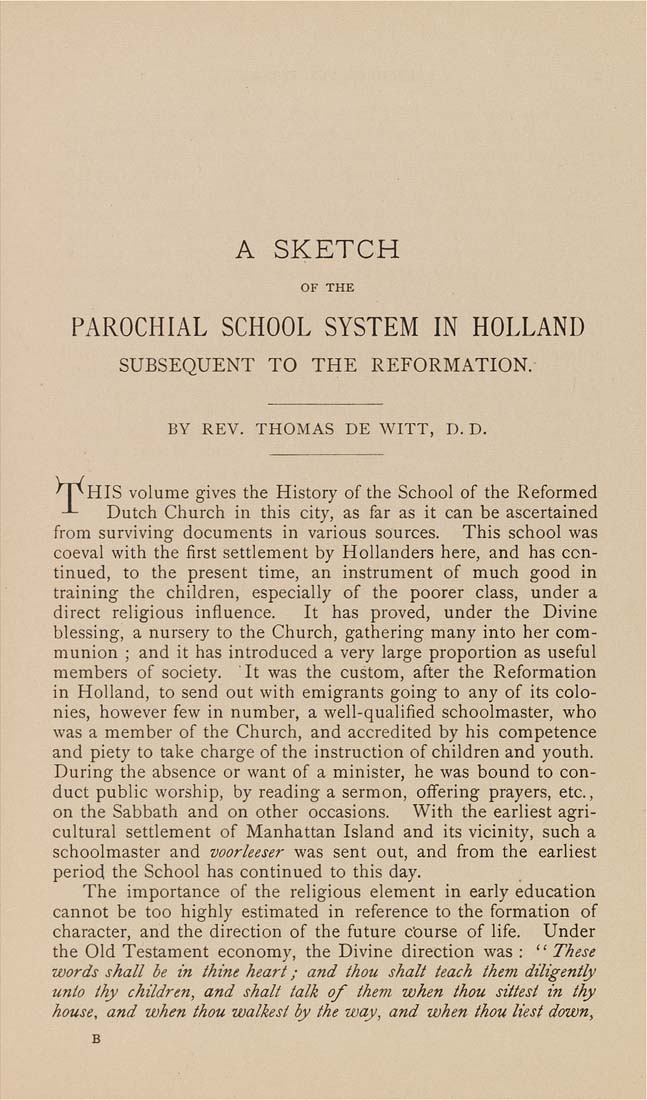A SKETCH
OF the
PAROCHIAL SCHOOL SYSTEM IN HOLLAND
SUBSEQUENT TO THE REFORMATION.
BY REV. THOMAS DE WITT, D. D.
'pHIS volume gives the History of the School of the Reformed
-•- Dutch Church in this city, as far as it can be ascertained
from surviving documents in various sources. This school was
coeval with the first settlement by Hollanders here, and has con¬
tinued, to the present time, an instrument of much good in
training the children, especially of the poorer class, under a
direct religious influence. It has proved, under the Divine
blessing, a nursery to the Church, gathering many into her com¬
munion ; and it has introduced a very large proportion as useful
members of society. It was the custom, after the Reformation
in Holland, to send out with emigrants going to any of its colo¬
nies, however few in number, a well-qualified schoolmaster, who
was a member of the Church, and accredited by his competence
and piety to take charge of the instruction of children and youth.
During the absence or want of a minister, he was bound to con¬
duct public worship, by reading a sermon, offering prayers, etc.,
on the Sabbath and on other occasions. With the earliest agri¬
cultural settlement of Manhattan Island and its vicinity, such a
schoolmaster and voorleeser was sent out, and from the earliest
period the School has continued to this day.
The importance of the religious element in early education
cannot be too highly estimated in reference to the formation of
character, and the direction of the future Course of life. Under
the Old Testament economy, the Divine direction was : " These
words shall be in thine heart; and thou shall teach them diligently
unto thy children, and shall talk of them when thou sittest in thy
house, and when thou walkest by the way, and when thou liest down.
|








